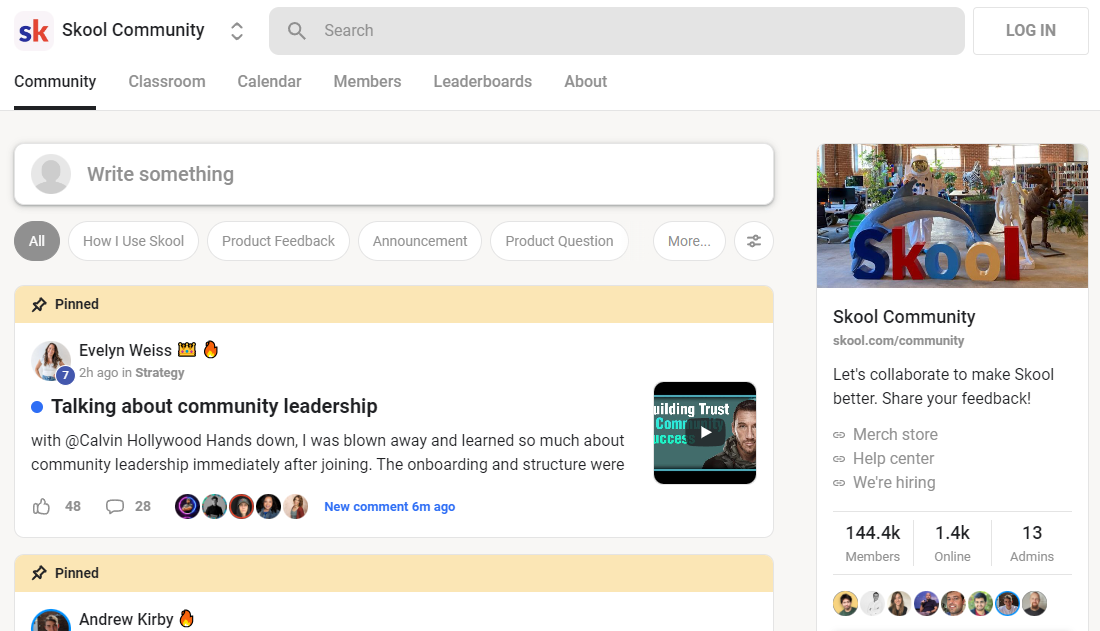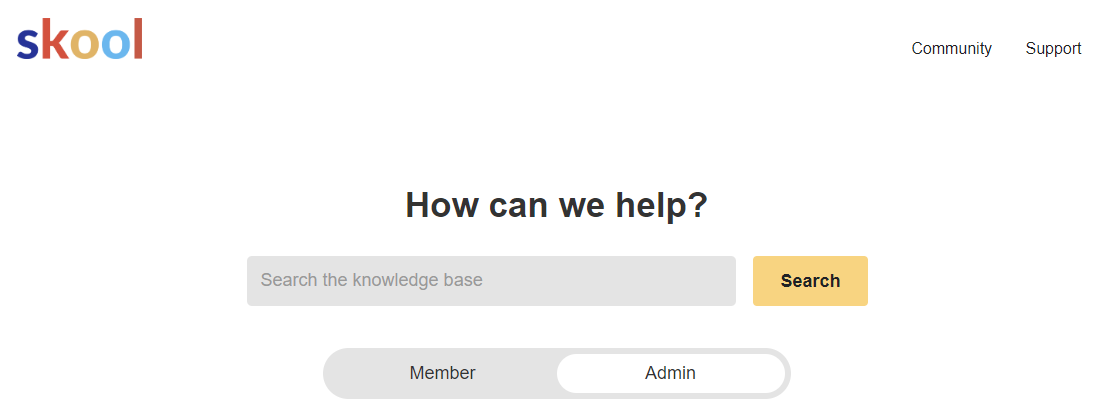Skool uses best-in-class gamification attributes that boost involvement. As an example, members can make degrees based upon their engagement, which open course material and other benefits that further inspire them.
Formerly, creators had to use different tools for holding programs, constructing communities and managing email advertising and marketing. This produced a disjointed experience for both developers and their audiences.
Producing Courses
Skool has a simple, straightforward user interface and prioritizes area building and program organizing over various other features. It allows makers to produce a vivid area for their training courses and training programs by linking them with the ideal target market. This also helps them keep an eye on the wellness of their content business with the help of a basic dashboard.

To start, a person can sign up for a complimentary 14-day trial of Skool. Afterwards, they can pay $99 a month for the platform to organize a solitary area. There are nothing else pricing choices available for the moment. Skool likewise refines payment and pays creators weekly, yet it does bill a 2.9% deal cost.
One of the one-of-a-kind facets of Skool is that it can be made use of to develop interactive training courses. These can consist of live webinars, group projects and real-time conversations. These sorts of programs encourage involvement and boost training course completion rates. Additionally, Skool’s gamification attributes aid to encourage neighborhood involvement. For example, members can earn points and unlock course material when they reach certain levels in the community.
Individuals can also make use of the social eat Skool to publish updates and engage with others in the neighborhood. The feed appears like a Facebook team, yet with an extra regulated way of uploading. This aids to prevent the sort of spam and misuse that happens on various other social platforms.
Taking care of Communities
Skool is a very straightforward system to make use of, for both members and admins. Its simplicity is just one of its main selling points– when someone joins your community they will not be confronted with a bunch of options or features that can derail their experience and puzzle them.
The platform begins as a personal team by default, yet you can quickly change this to open your neighborhood to anybody that you want to become part of it. Once you’ve done this you’ll see a social feed like you would certainly on Facebook Groups or WhatsApp (but without all the fraud stuff and swearing).
You can additionally include a class tab to your neighborhood that you can make use of to share academic material with your participants. This attribute is specifically useful for areas that are focused on discovering or professional development as it assists to create an educational structure and makes it very easy for members to track their development. Additionally, the system has gamification components that enable participants to make factors by suching as blog posts or comments. When they get to a certain degree they can unlock resources, such as programs, additionally driving involvement.
The other great thing is that Skool has a mobile application, just like Mighty Networks or Slack, so participants can stay up to date with your community and communicate on the go. This is a wonderful means to motivate and involve your members and to help them get support from each other when they need it, rather than just turning to you for answers.
Who Developed Skool
Skool focuses on gamification, permitting customers to gain points and badges for their payments. This inspires participants to engage with the community and add to discussions. Consequently, this helps them level up and unlock advantages like video clips and other content. Admins can also establish training courses to be opened at certain levels to further drive interaction.

The Skool interface is very clean and intuitive. Its highlights consist of the Community tab, which looks similar to a Facebook team feed. Here, individuals can post remarks and text along with upload pictures, links and video clips. Participants can likewise watch each others profiles and get in touch with them. Additionally, users can create private teams in the area to go over particular subjects.
An additional function of Skool is the Classroom tab, which is similar to a YouTube livestream or Zoom conference. Using this, administrators can organize trainings and webinars for their students. They can likewise include occasions in the schedule to remain upgraded on upcoming occasions and Who Developed Skool.
However, some aspects of Skool might use improvement. As an example, the platform isn’t versatile when it comes to money making as individuals can not use multiple rates tiers for their training courses and community subscriptions. Additionally, the tool lacks an e-mail marketing function, which could be a deal breaker for some training course developers. It likewise doesn’t have indigenous video clip hosting, implying that users require to utilize exterior systems like YouTube, Loom and Vimeo for their video clips.
Including Content
The procedure for including content and connecting with participants on Skool is easy and uncomplicated. Admins can create blog posts with message, GIFs, video clips and surveys. They can likewise include event calendars to notify community participants of upcoming team Zoom calls or live streams. In addition, they can utilize Skool’s email broadcast feature to send out a message to the whole neighborhood with a solitary click. This eliminates the requirement for labeling and listing division, which can be cumbersome.
Moreover, Skool’s gamification attributes can enhance engagement and individual retention. It motivates members to interact with the material often by awarding them with various perks. These consist of unlocking course content, earning factors and gaining a spot on neighborhood leaderboards.
While Skool provides a host of beneficial functions for creating and providing on-line programs, it’s except everybody. The platform is best for trainers, professionals and various other information entrepreneurs. Nonetheless, the price tag can be an obstacle for some people aiming to monetize their on the internet content.
In addition, the lack of standard tiers and a short free trial might be a deterrent for many. In addition, the system’s laser-focus on eLearning can make it less desirable for people who intend to sell various other electronic items. Nonetheless, regardless of these downsides, Who Developed Skool is still a feasible choice for any person aiming to produce and generate income from online programs.